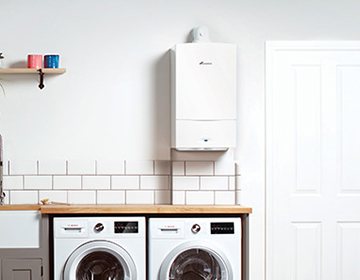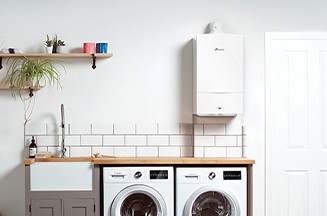What type of house do you live in?
Larger homes, with more rooms, have a greater number of radiators and showers. Especially if you have two or more floors, you’re going to need a more powerful heat-only boiler for your home. For smaller homes, such as flats and small houses, a combi will be best suited. The only time where a smaller home would benefit from a heat-only boiler is where you’ve got several people who need hot water (baths, showers, dishwashers, washing machines) at the same time.
Before you decide, think about any plans to change your home in the near future, which might mean you need more energy. Adding an extension, for example. If that’s in your plans, it might be worth changing your boiler type or increasing the size and power of it now.













